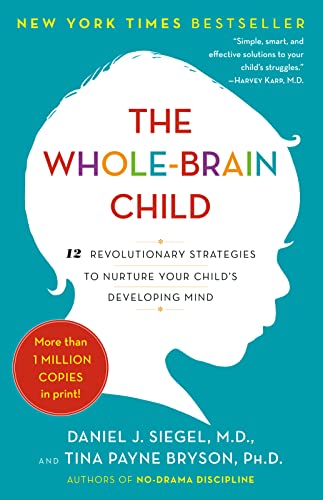9 Early Childhood Books That Shape Expert Parenting and Education
Discover books recommended by Sharon Lynn Kagan, Nina Garcia, and Adam J Calhoun that empower understanding and care in Early Childhood Books


What if understanding the earliest years of a child's life could unlock pathways to lifelong success? Early childhood is a period of astonishing growth and change, yet many parents and educators feel overwhelmed by conflicting advice and rapid developments. Now, experts like Sharon Lynn Kagan, a professor shaping early childhood policy, and Nina Garcia, a leading voice in parenting communication, have pinpointed a selection of books that cut through the noise to offer clarity and proven strategies.
Sharon Lynn Kagan draws attention to the importance of culturally responsive teaching practices highlighted in "Developmentally Appropriate Practice," while Nina Garcia champions "Baby Sign Language Made Easy" for its empowering communication tools. Neuroscience researcher Adam J Calhoun praises "Baby 411" for its medically grounded, practical guidance, reflecting the blend of science and real-world parenting needs these books address.
While these expert-curated titles provide trusted frameworks and insights, those seeking content tailored to their unique family dynamics, cultural background, or educational goals might consider creating a personalized Early Childhood book that builds on these insights, tailored specifically to your situation and preferences.
Recommended by Sharon Lynn Kagan
Marx Professor of Early Childhood Policy
“Continuing its path-breaking tradition, the fourth edition of Developmentally Appropriate Practice is fresh and remarkably resonant with contemporary issues; it is ethically provocative and practically useful. Elevating the importance of cultural, social, and educational contexts, this edition beckons intentional reflection on the role and transcendence of bias in inhibiting the creation of just learning opportunities and a just society. To advance this hard and necessary work, this edition also offers practical guideposts, including rich examples and probing discussion questions. Its elegant nine principles of development and learning render it an unparalleled gift to the profession.”
by NAEYC, Susan Friedman, Brian L Wright, Marie L. Masterson, Barbara Willer, Sue Bredekamp··You?
by NAEYC, Susan Friedman, Brian L Wright, Marie L. Masterson, Barbara Willer, Sue Bredekamp··You?
When the National Association for the Education of Young Children (NAEYC) and experts like Susan Friedman developed this fourth edition, they tackled how to align early childhood education with today’s diverse and dynamic learning environments. You’ll gain detailed insights into developmentally appropriate practices, with clear examples spanning infants to primary grades, emphasizing equity and cultural context. The book guides you through applying nine core principles of child development and learning, alongside practical examples and discussion prompts that challenge biases in educational settings. If you’re involved in early learning—whether as an educator, leader, or policymaker—this book offers a grounded framework to refine your approach and thoughtfully support all children’s growth.
Recommended by Nina Garcia
Elle Editor in Chief, Project Runway Judge
“Baby Sign Language Made Easy is a beautiful, easy-to-understand resource about how to learn and teach baby sign language to young children. Drawing on the benefits of baby sign language for both parent and child, Ms. Rebelo not only provides a thorough collection of useful signs, but shows you exactly how to introduce them to your child. This is a must-read for any parent eager to use baby sign language.”
by Lane Rebelo··You?
When Lane Rebelo first experienced the power of sign language with her own baby, she realized how essential non-verbal communication could be for early development. Drawing from her background as a licensed social worker and founder of Tiny Signs®, she offers 101 American Sign Language signs organized by everyday contexts like mealtime and playtime. You learn not just the signs, but also how to introduce them effectively to your child, helping reduce frustration and foster connection. This book suits parents eager to enhance communication with infants before speech develops, providing clear guidance and practical examples without overwhelming jargon.
by TailoredRead AI·
This personalized book provides a tailored framework for understanding and fostering early childhood growth and learning, customized to the reader's unique family context and educational goals. It covers developmental stages, cognitive and emotional milestones, and effective learning strategies, while focusing on practical application within a child's specific environment. The content cuts through generic advice by addressing cultural, social, and individual factors that influence early development. Readers gain a comprehensive yet focused guide that integrates evidence-based approaches with personalized recommendations, enabling actionable plans to promote optimal growth and learning outcomes in early childhood.
Recommended by Berry Brazelton
Professor Emeritus, Harvard Medical School
“This is a very practical and entertaining window into the baby's first year and a half. van de Rijt and Plooij have observed and found the vulnerable times in an infant's development that I independently came to in my book Touchpoints (Perseus). The authors' observations and practical suggestions are wonderful.”
by Xaviera Plooij, Frans X. Plooij PhD, Hetty van de Rijt PhD··You?
by Xaviera Plooij, Frans X. Plooij PhD, Hetty van de Rijt PhD··You?
Unlike most parenting books that focus solely on external baby care, this guide delves into the developmental leaps in a baby's brain during the first 20 months. Drawing from nearly five decades of research by Frans X. Plooij and his collaborators, including fieldwork with Jane Goodall, the authors explain how periods of fussiness signal important cognitive growth phases. You learn to recognize these "wonder weeks" and support your baby's emerging skills with simple games and observations, as detailed in chapters covering each leap and corresponding behaviors. This book suits new parents eager to understand the why behind their infant's changing moods and behaviors, offering science-backed insight without overwhelming jargon.
by Robert Bucknam M.D., Gary Ezzo··You?
by Robert Bucknam M.D., Gary Ezzo··You?
What if your newborn's sleep could be gently guided toward consistency right from the start? Pediatrician Dr. Robert Bucknam and parenting expert Gary Ezzo developed a method that synchronizes feeding, wakefulness, and sleep cycles to help infants—and their families—establish restful nights. You’ll find detailed explanations of newborn metabolism and how predictable routines can support natural sleep patterns, with practical examples of daily schedules and feeding rhythms. This book suits parents eager to understand the biological rhythms influencing their baby’s behavior and who want to foster healthy sleep habits early on, though it may not fit those seeking a flexible, laissez-faire approach.
Recommended by Adam Ozimek
Economist and author on family economics
“In my household, Emily Oster is the all-knowing Aunt we have never met. Parenting would be a lot more stressful without these books.”
by Emily Oster··You?
Drawing from her expertise as an economics professor at Brown University, Emily Oster challenges the conventional parenting playbook with a data-driven lens. You’ll learn how to weigh trade-offs on breastfeeding, sleep training, potty readiness, and toddler discipline with less guilt and confusion, backed by research rather than anecdote. For example, she debunks the myth that early talkers are necessarily more intelligent and offers practical ways to balance parental choices with family dynamics. If you seek clarity amid parenting noise and want to make decisions grounded in evidence yet tailored to your unique circumstances, this book is a thoughtful companion.
by TailoredRead AI·
This personalized book provides a detailed, step-by-step daily action plan focused on enhancing infant communication skills within 30 days. It offers a tailored framework that zeroes in on practical activities designed to promote early language development, recognizing the nuances of your child's age, developmental stage, and environment. By cutting through generic advice, it fits your specific family context, emphasizing interaction techniques, signaling cues, and responsive communication practices. The book also addresses common challenges and milestones, equipping caregivers with targeted strategies to foster meaningful early exchanges and accelerate language acquisition in infants.
by Pamela Brillante··You?
by Pamela Brillante··You?
When Pamela Brillante, EdD, a seasoned special education professor and former administrator, developed this guide, she focused on equipping educators with the tools to support young children with disabilities effectively. You’ll find clear explanations of developmental delays, special education laws, and the referral and assessment processes, along with practical strategies for collaboration with families and professionals. The book covers specific disabilities like autism spectrum disorder and ADHD, helping you understand how to foster inclusive classrooms where every child can thrive. If you work with children from birth to age eight and want a grounded, approachable resource, this book will fit your needs.
Recommended by Adam J Calhoun
Neuroscience researcher and behavior analyst
“@caitvw 4. buy some clothes with mittens on them for little baby, especially for when they sleep; you won't believe how often they scratch themselves in their sleep 5. Get Baby 411, BY FAR the best baby book 6. get a small bottle sanitizer” (from X)
by Ari Brown M.D., Denise Fields··You?
When Dr. Ari Brown first rethought conventional wisdom around infant care, she aimed to create a resource that speaks plainly and thoroughly to new parents. Drawing from her role as a pediatrician and American Academy of Pediatrics spokesperson, Brown teamed up with Denise Fields to offer clear guidance on everything from breastfeeding nuances to calming techniques for fussy babies. You’ll find chapters that debunk rigid feeding schedules in favor of "fearless feeding," along with updated advice on sleep strategies and introducing solids. This book suits parents seeking medically grounded, approachable answers without the fluff, especially during baby’s critical first year.
Recommended by Michael Thompson
Psychologist specializing in child development
“In their dynamic and readable new book, Daniel Siegel and Tina Payne Bryson sweep aside the old models of ‘good’ and ‘bad’ parenting to offer a scientific focus: the impact of parenting on brain development. Parents will certainly recognize themselves in the lively ‘aha’ anecdotes that fill these pages. More important, they will see how everyday empathy and insight can help a child to integrate his or her experience and develop a more resilient brain.”
by Daniel J. Siegel M.D., Tina Payne Bryson··You?
by Daniel J. Siegel M.D., Tina Payne Bryson··You?
What if everything you knew about early childhood development was wrong? Daniel J. Siegel and Tina Payne Bryson challenge conventional parenting wisdom by focusing on how a child's brain develops and matures. You’ll explore twelve strategies that connect emotional and logical parts of the brain, helping you transform tantrums and outbursts into moments of growth. For example, the book explains how the "upstairs brain" responsible for decision-making is still developing well into the twenties, which sheds light on typical childhood behaviors. If you’re a parent or caregiver seeking to foster emotional balance and resilience in children, this book offers clear insights grounded in neuroscience without being overly technical.
Recommended by Amir Salihefendic
Founder and CEO at Doist
by Armin A. Brott··You?
by Armin A. Brott··You?
Armin A. Brott, a nationally recognized parenting expert and author of ten books focused on fatherhood, draws from decades of experience to guide new dads through their child's first year. You’ll find detailed month-by-month insights into your baby’s development alongside practical reflections on your own emotional and psychological changes as a father. The book addresses evolving societal expectations, including how technology reshapes fatherhood, and offers support for diverse family situations like same-sex couples and blended families. By blending the latest research with relatable humor and real-life examples, Brott creates a nuanced resource tailored specifically to help you stay connected and engaged during this critical early stage.
Get Your Personal Early Childhood Guide in 10 Minutes ✨
Stop guessing with generic advice. Gain targeted strategies tailored to your family's unique needs and goals.
Join 15,000+ Early Childhood enthusiasts who've personalized their approach
Conclusion
The nine books featured here collectively underscore three clear themes: the power of developmentally informed practices, the value of clear communication and emotional connection, and the necessity of evidence-based decision-making in early childhood care and education. Whether you're an educator seeking inclusive classroom strategies or a parent navigating sleep routines and communication barriers, these titles provide actionable knowledge grounded in expert experience.
If you're facing challenges with infant sleep, pairing "On Becoming Babywise" with "Cribsheet" offers both routine-building and data-driven clarity. For those focused on developmental milestones and emotional intelligence, "The Wonder Weeks" and "The Whole-Brain Child" work in concert to deepen understanding and practical application.
Once you've absorbed these expert insights, create a personalized Early Childhood book to bridge the gap between general principles and your specific situation. Tailored content can help translate these foundational ideas into strategies that fit your family's unique needs and aspirations.
Frequently Asked Questions
I'm overwhelmed by choice – which book should I start with?
Start with "Developmentally Appropriate Practice" if you're an educator, or "Baby 411" if you're a parent seeking medically grounded guidance. Both offer comprehensive yet accessible foundations to build your early childhood knowledge.
Are these books too advanced for someone new to Early Childhood?
Not at all. Titles like "Baby Sign Language Made Easy" and "The New Father" are approachable for beginners, offering clear, practical steps without jargon or complexity.
What's the best order to read these books?
Begin with books that match your immediate needs—sleep routines, communication, or developmental milestones—and then explore broader topics like emotional intelligence with "The Whole-Brain Child."
Do I really need to read all of these, or can I just pick one?
You can pick based on your focus area, but combining complementary books like "Cribsheet" and "On Becoming Babywise" can deepen understanding and provide well-rounded guidance.
Are any of these books outdated given how fast Early Childhood changes?
These books reflect current research and expert consensus, with many recent editions. They balance timeless principles with updated insights relevant to modern families and educators.
How can I get Early Childhood advice tailored to my specific family needs?
While these expert books offer solid foundations, personalized books created from your unique background, goals, and interests can provide targeted strategies. Try creating a personalized Early Childhood book to complement expert insights with customized guidance.
📚 Love this book list?
Help fellow book lovers discover great books, share this curated list with others!
Related Articles You May Like
Explore more curated book recommendations








